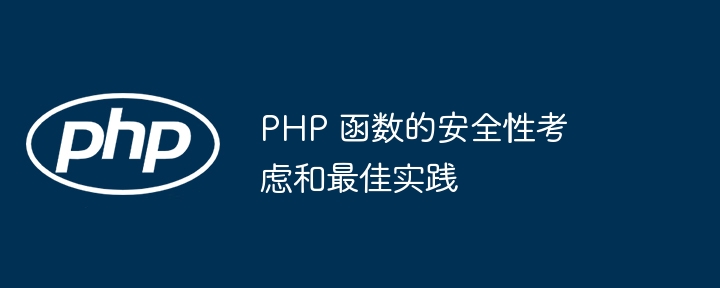
Security considerations for PHP functions include input validation, escaping output, authorization and authentication, function overrides, and disabling dangerous functions. Best practices include using parameter type checking, safe string functions, input/output filters, the principle of least privilege, and conducting security audits.

Security considerations and best practices for PHP functions
Functions in PHP provide powerful functionality, but if not Consider their safety carefully, they can pose serious risks. This article explores security considerations for PHP functions and provides best practices to help you write safer, more robust code.
Security Considerations
filter_input() or custom regular expressions. htmlspecialchars() to escape output. ini_set() function or override the configuration in php.ini to disable unnecessary functions. Best Practices
filter_input(), preg_replace() and str_replace() etc. Safe string functions to validate and process input. Practical case
Let us consider a function that handles user input:
function processUserInput($input) {
return $input;
}In order to improve its security , we can apply the following best practices:
##Input validation: Use regular expressions to verify that the input contains only letters and numbers:
if (!preg_match('/^[a-zA-Z0-9]+$/', $input)) {
throw new InvalidArgumentException("Invalid input");
}Escape output: Escape output before outputting to HTML:
return htmlspecialchars($input);
The above is the detailed content of Security considerations and best practices for PHP functions. For more information, please follow other related articles on the PHP Chinese website!




